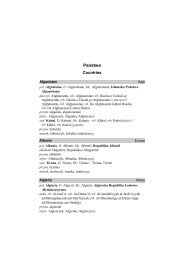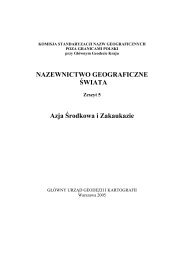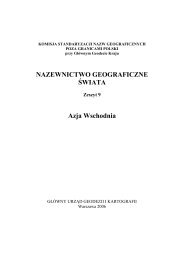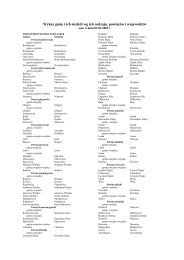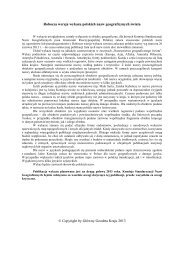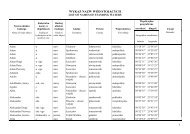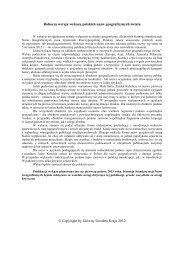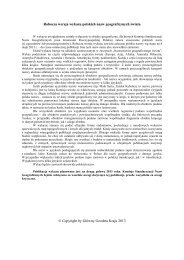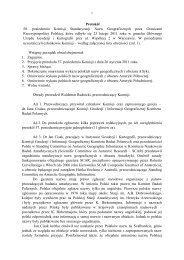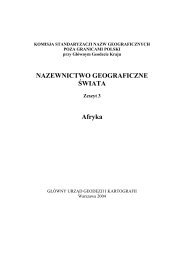TOPONYMIC GUIDELINES OF POLAND - KSNG Nazwy geograficzne
TOPONYMIC GUIDELINES OF POLAND - KSNG Nazwy geograficzne
TOPONYMIC GUIDELINES OF POLAND - KSNG Nazwy geograficzne
Create successful ePaper yourself
Turn your PDF publications into a flip-book with our unique Google optimized e-Paper software.
II. GEOGRAPHICAL NAMES STANDARDIZATIONIN <strong>POLAND</strong>1. History and Organization of the GeographicalNames StandardizationCollection and standardization of geographic names has a longtradition in Poland. It can be traced back to the 18th century, whenfirst maps and gazetteers covering the whole country or its large partswere published.On the turn of the 19th century fifteen volumes of the ‘Słownikgeograficzny Królestwa Polskiego’ (Geographic Dictionary of theKingdom of Poland) appeared in print. It listed a very large number ofnames of villages, towns, rivers, mountains and lakes. Also the entriesof that dictionary contained the first attempt to standardize Polishgeographic names.When Poland regained independence in 1918, it becamenecessary to standardize geographic names of objects in areasformerly annexed by Prussia, Austria and Russia. It resulted in a newsystematic approach to these issues. Therefore, two editions of officialgazetteers were published during that time. Also first researchactivities on toponyms were initiated.After the World War II it became vital to standardize geographicnames, and to establish new names on large areas. The Commissionfor Establishing Names of Localities and Physiographic Objects,which was established before the World War II, was reestablishedshortly after the war. The Commission underwent severalorganizational changes. It currently is a part of the Ministry of theInterior and Administration.The activities of the Commission resulted in publication of thelists of standardized names such as ‘Słownik nazw geograficznychPolski Zachodniej i Północnej’ (Dictionary of Geographic Names of25


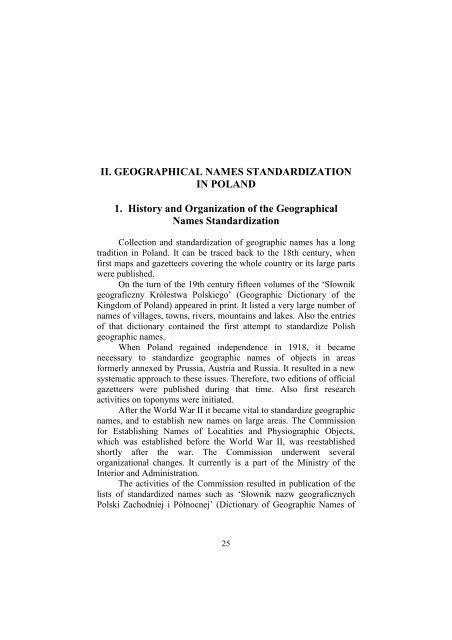
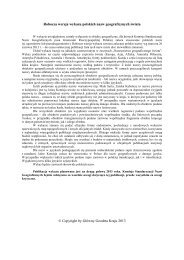
![Wykaz nazw miejscowości do mapy [plik pdf] - KSNG Nazwy ...](https://img.yumpu.com/51618887/1/184x260/wykaz-nazw-miejscowosci-do-mapy-plik-pdf-ksng-nazwy-.jpg?quality=85)


